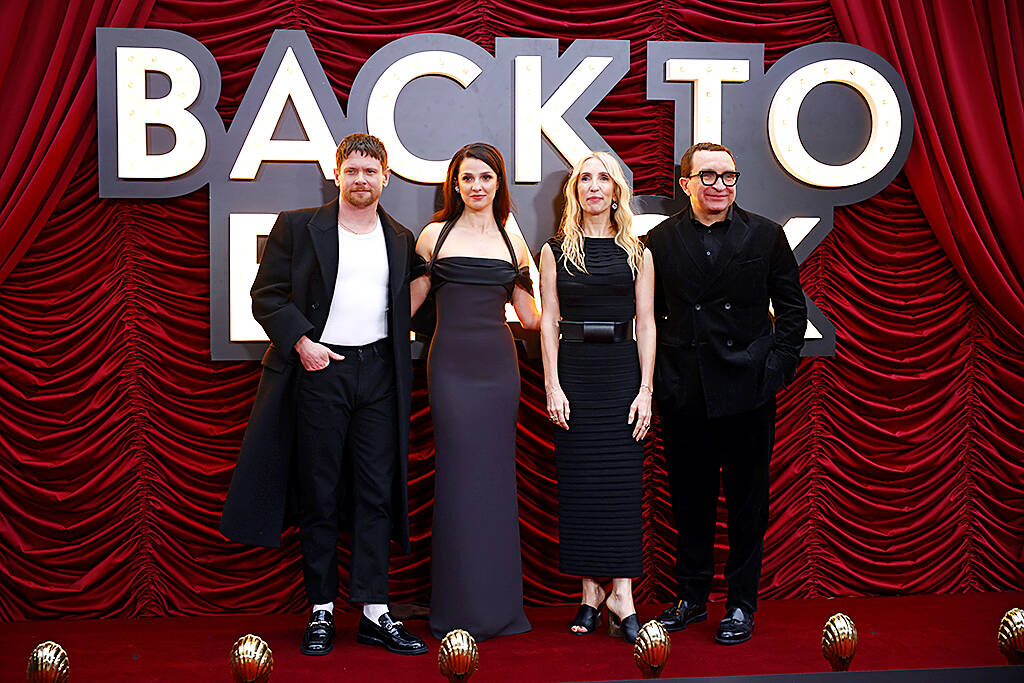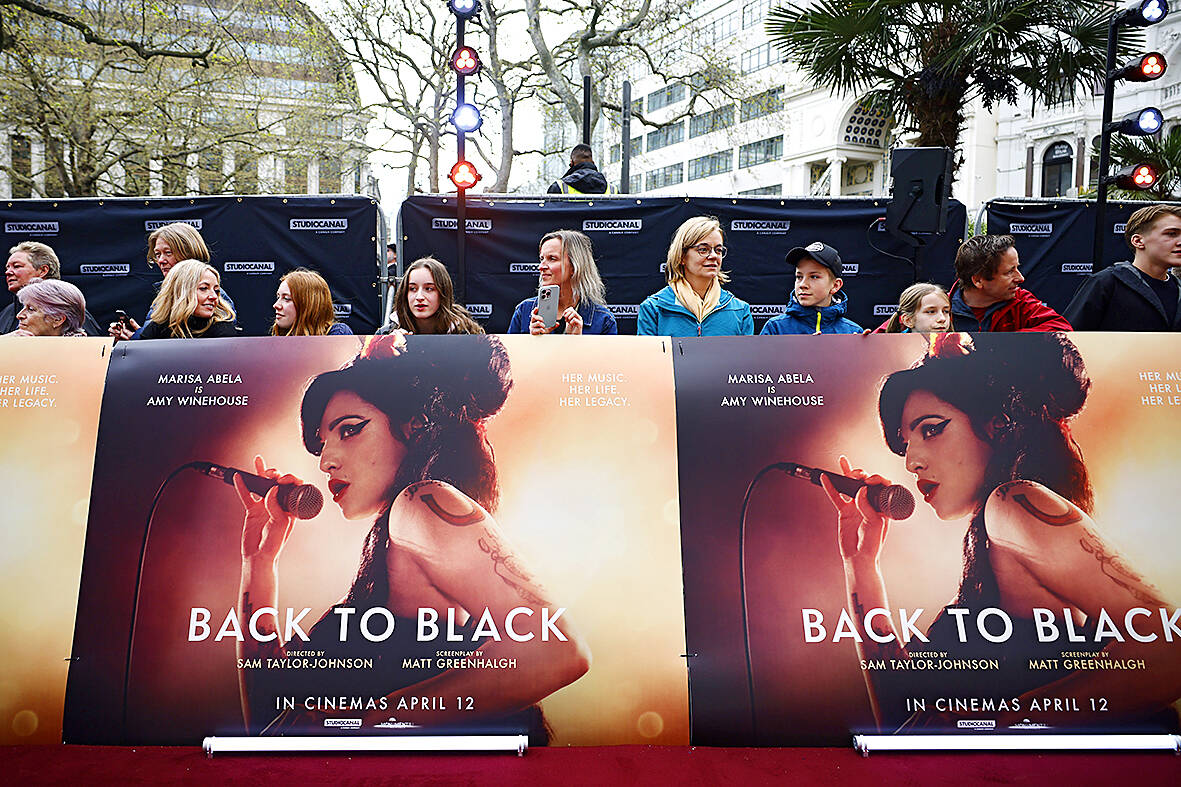Amy Winehouse’s lyrics and music were the “guiding star” for director Sam Taylor-Johnson in bringing the late singer’s story to the screen in Back to Black.
The biographical feature film follows Winehouse’s rise to fame and portrays her relationships with her family and former husband Blake Fielder-Civil.
It comes nearly 13 years after the six-time Grammy Award winner died from alcohol poisoning, aged 27. Considered one of the most talented singers of her generation, her untimely death shook the music world.

Photo: AFP
AMY’S PERSPECTIVE
Telling the story from Winehouse’s point of view was essential to Taylor-Johnson.
“I just wanted it to be in her perspective to kind of give her her agency back because I felt like it had been kind of taken away and she’d just become a victim of her tragedy,” she said at the film’s world premiere in London on Monday.

Photo: EPA
“I felt like doing it through her words, her music, kind of like brought the music back to life and celebrated her again, and that felt so important. It felt like she deserved that.”
British actress Marisa Abela plays Winehouse, a role she found both daunting and a dream.
“You don’t get parts like Amy every day. And that’s not because she’s Amy Winehouse but it’s because she was everything in one.”

Photo: EPA
“She was smart and funny and bold and brave, but also incredibly vulnerable and emotional and that’s kind of what I wanted to bring. I wanted to...remind people of the vulnerability of Amy, the girl behind the music.”
INTO THE ROLE
Abela, 27, who performs the Rehab singer’s hit songs in the film said she took daily singing lessons for four months and studied Winehouse’s lyrics in preparation for the role.
Back to Black has been approved by the Amy Winehouse Estate and Taylor-Johnson also met with Winehouse’s parents.
“I didn’t need anybody’s approval. And that’s important for me to say because it’s important also to declare I made the exact film I wanted to make. I had all music approvals. But I wanted to meet with the family out of respect for the fact that I was making a film about their daughter, and it felt wrong not to meet with them. And the fact that they’ve approved this since seeing it, is really good,” Taylor-Johnson said.
“I would hope that Amy would feel proud that her music has stood such a big test of time, and that we’re here to celebrate her again,” she added.
Back to Black began its global cinematic rollout yesterday.

Last week saw the appearance of another odious screed full of lies from the People’s Republic of China (PRC) Ambassador to Australia, Xiao Qian (肖千), in the Financial Review, a major Australian paper. Xiao’s piece was presented without challenge or caveat. His “Seven truths on why Taiwan always will be China’s” presented a “greatest hits” of the litany of PRC falsehoods. This includes: Taiwan’s indigenous peoples were descended from the people of China 30,000 years ago; a “Chinese” imperial government administrated Taiwan in the 14th century; Koxinga, also known as Cheng Cheng-kung (鄭成功), “recovered” Taiwan for China; the Qing owned

Jan. 20 to Jan. 26 Taipei was in a jubilant, patriotic mood on the morning of Jan. 25, 1954. Flags hung outside shops and residences, people chanted anti-communist slogans and rousing music blared from loudspeakers. The occasion was the arrival of about 14,000 Chinese prisoners from the Korean War, who had elected to head to Taiwan instead of being repatriated to China. The majority landed in Keelung over three days and were paraded through the capital to great fanfare. Air Force planes dropped colorful flyers, one of which read, “You’re back, you’re finally back. You finally overcame the evil communist bandits and

I am kneeling quite awkwardly on a cushion in a yoga studio in London’s Shoreditch on an unseasonably chilly Wednesday and wondering when exactly will be the optimum time to rearrange my legs. I have an ice-cold mango and passion fruit kombucha beside me and an agonising case of pins and needles. The solution to pins and needles, I learned a few years ago, is to directly confront the agony: pull your legs out from underneath you, bend your toes up as high as they can reach, and yes, it will hurt far more initially, but then the pain subsides.

When Angelica Oung received the notification that her Xiaohongshu account had been blocked for violating the social media app’s code of conduct, her mind started racing. The only picture she had posted on her account, apart from her profile headshot, was of herself wearing an inflatable polar bear suit, holding a sign saying: “I love nuclear.” What could be the problem with that, wondered Oung, a clean energy activist in Taiwan. Was it because, at a glance, her picture looked like someone holding a placard at a protest? Was it because her costume looked a bit like the white hazmat suits worn